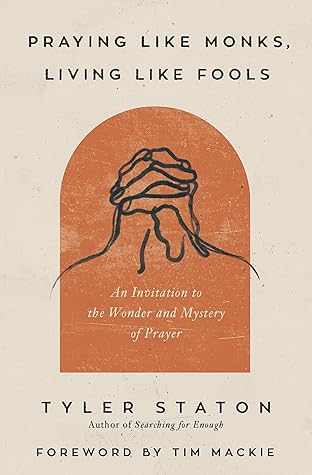More on this book
Community
Kindle Notes & Highlights
by
Tyler Staton
“Is there an infinitely loving, altogether good Author behind this grand story or not? And if there is, what are the chances he’s gently trying to catch my attention?”
It only takes a moment to turn an everyday place into holy ground.
It means risking real interaction with that God, and the longer we’ve gotten used to settling for the noise around God, the higher the stakes.
God is looking for relationship, not well-prepared speeches spoken from perfect motives.
It’s the worry that, at the end of the day, this God, near or far, can’t be trusted, that he’s something less than who he promises to be, and that—really, when it comes right down to it—I’m on my own.
“The most important discovery you will ever make is the love the Father has for you,” writes Pete Greig, founder of the 24-7 Prayer Movement. “Your power in prayer will flow from the certainty that the One who made you likes you, he is not scowling at you, he is on your side . . . Unless our mission and our acts of mercy, our intercession, petition, confession, and spiritual warfare begin and end in the knowledge of the Father’s love, we will act and pray out of desperation, determination, and duty instead of revelation, expectation, and joy.”
Knowledge is hearsay. It’s memorizing the facts.
Discovery requires personal experience.
True love requires personal experience.
When it comes to prayer, you can read all the classics, study the revival stories, and treasure up every biblical insight. You can memorize the facts. Or you can live daily in relationship with God through prayer, insist on processing the extraordinary, the devastating, and all the mundanity in the middle with the eagerly listening Father. Guess which method is more effective?
Prayer is learned by ...
This highlight has been truncated due to consecutive passage length restrictions.
If prayer is the source of a deep wound or disappointment for you, remember that when trust is broken in a relationship, it doesn’t get healed by silence and distance; healing requires the courage of re-engaging. I won’t pretend that’s easy. But it is the place of healing.
Psalm 39, another of David’s prayers, reads, “Show me, LORD, my life’s end and the number of my days; let me know how fleeting my life is. You have made my days a mere handbreadth; the span of my years is as nothing before you. Everyone is but a breath, even those who seem secure.”25
Remember who God is. Remember who you are. Remember who we are to each other.
“God is knowable. And this man Jesus knows exactly who he is, exactly who he’s talking to.”
We struggle to believe in a God as powerful, good, knowable, and loving as the one Jesus introduces us to.
the biblical use of the word saint has nothing to do with human competence and everything to do with divine grace. To call someone a saint is not to necessarily call them good; it is only to name them as someone who has experienced the goodness of God.11 We recover our sainthood simply through adoration.
When we remember who God is, when we experience his goodness, we recover our own identity as well.
As Brennan Manning said so pointedly, “If I am not in touch with my own belovedness, then I cannot touch the sacredness of others.”16
Gratitude is the God-given reward for those who can stomach praying for small things.4
if you want to play jazz, you’ve got to learn the sheet music first. And if you want to pray with passion, spontaneity, and freedom, you’ve got to learn the sheet music.
Get these ancient, recited prayers into your bloodstream, and they’ll come out of you when you need them most.


